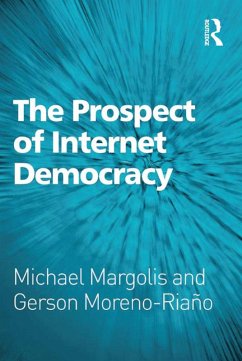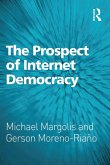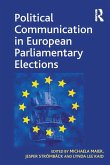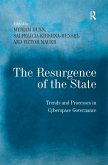The internet opens up new opportunities for citizens to organize and mobilize for action but it also provides new channels that established political, social and economic interests can use to extend their powers. Will the internet revolutionize politics? The Prospect of Internet Democracy is a rich and detailed exploration of the theoretical implications of the internet and related information and communication technologies (ICTs) for democratic theory. Focusing in particular on how political uses of the internet have affected or seem likely to affect patterns of influence among citizens, interest groups and political institutions, the authors examine whether the internet's impact on democratic politics is destined to repeat the history of other innovative ICTs. The volume explores the likely long-term effects of such uses on the conduct of politics in the USA and other nations that declare themselves modern democracies and assesses the extent to which they help or hinder viable democratic governance.
Dieser Download kann aus rechtlichen Gründen nur mit Rechnungsadresse in A, B, BG, CY, CZ, D, DK, EW, E, FIN, F, GR, HR, H, IRL, I, LT, L, LR, M, NL, PL, P, R, S, SLO, SK ausgeliefert werden.









